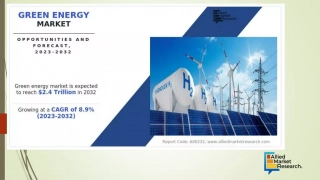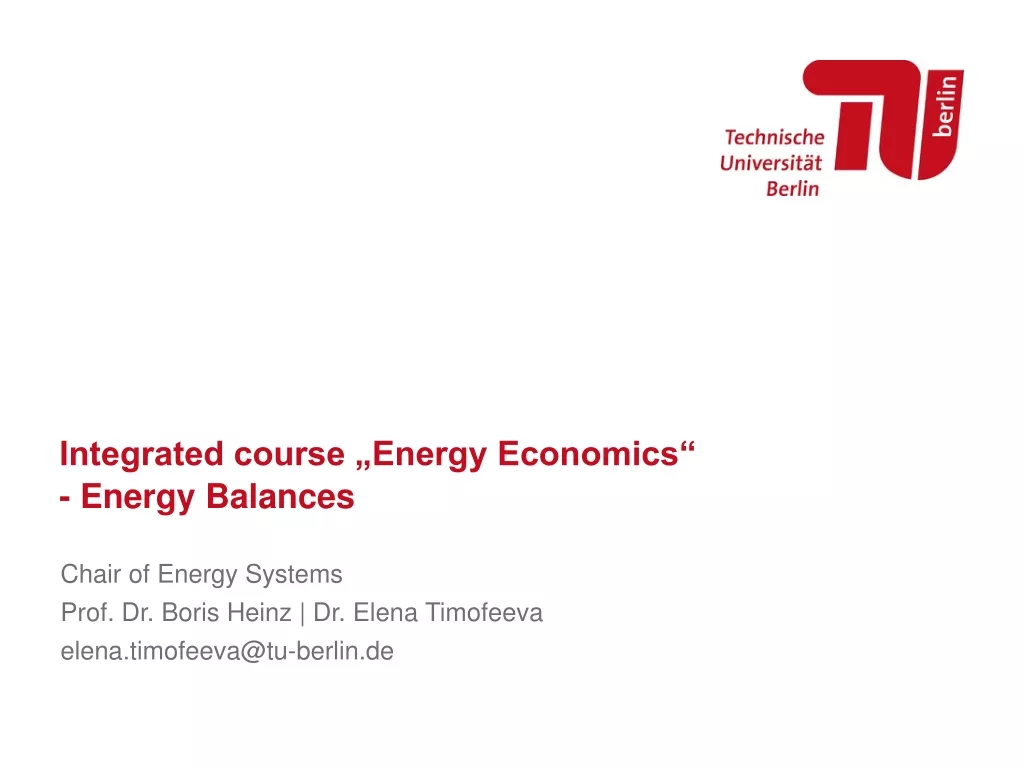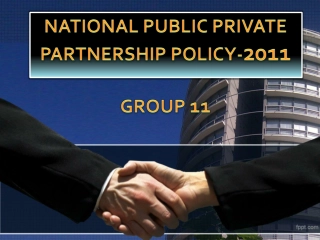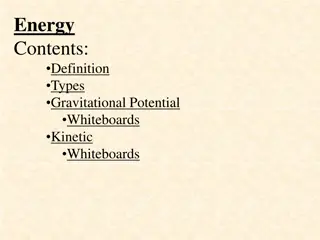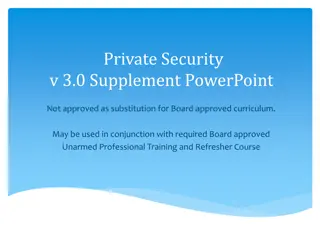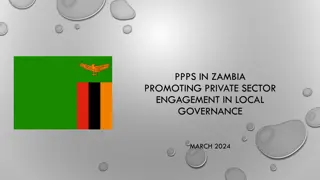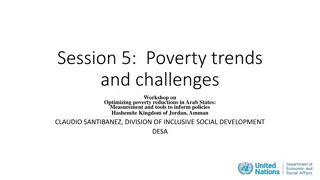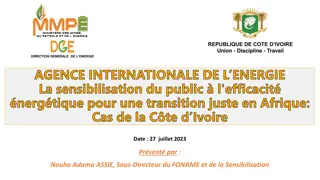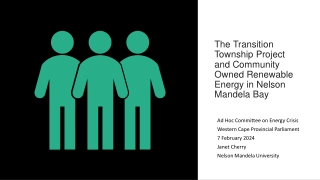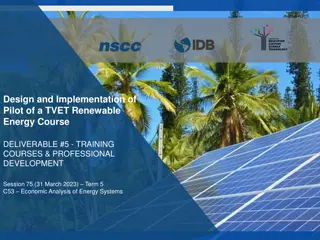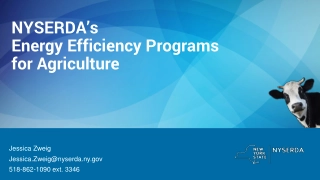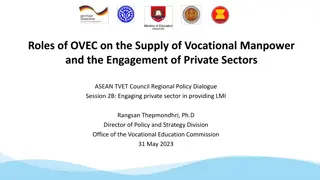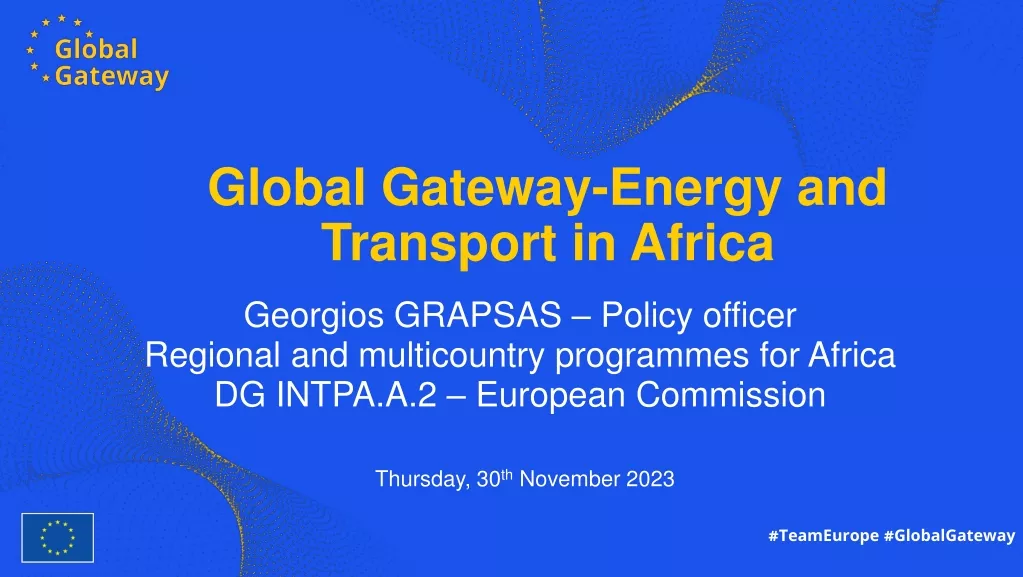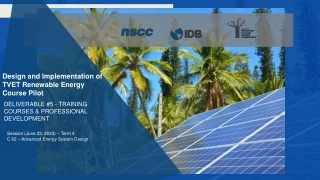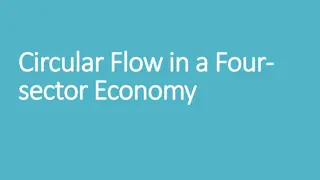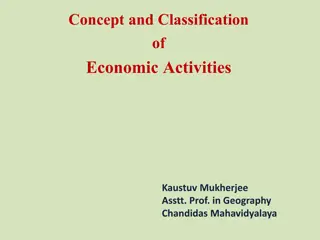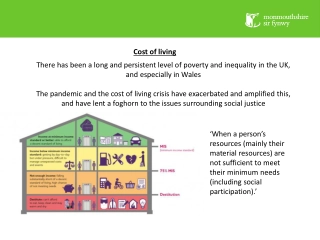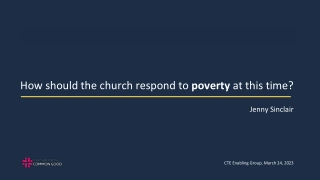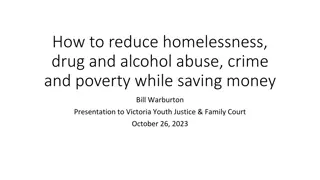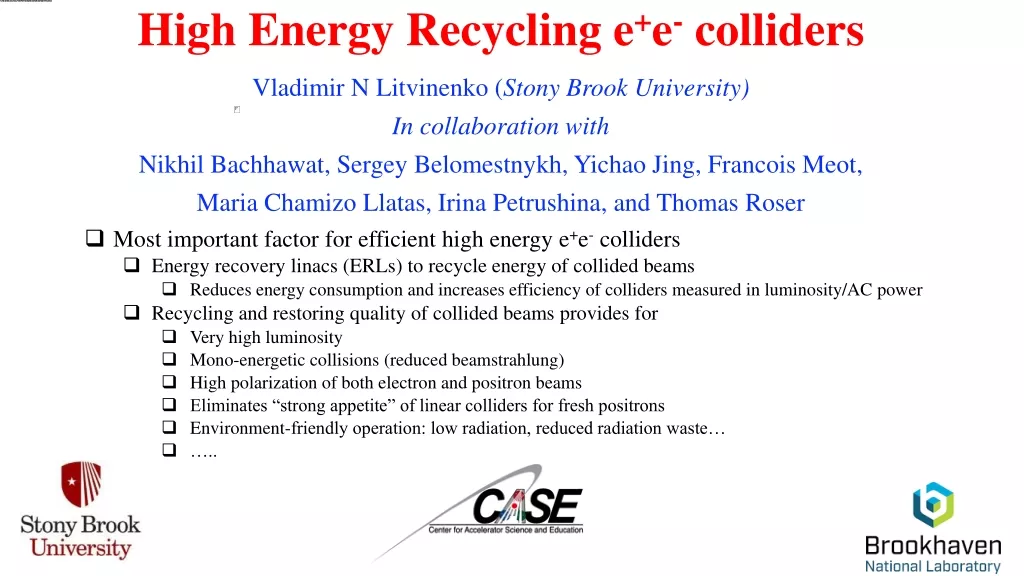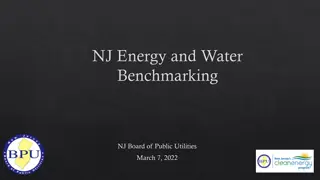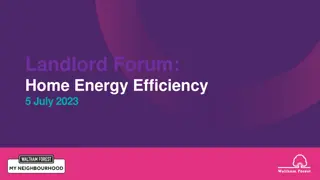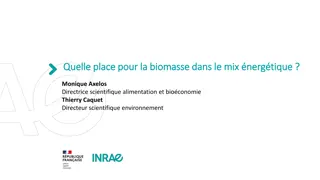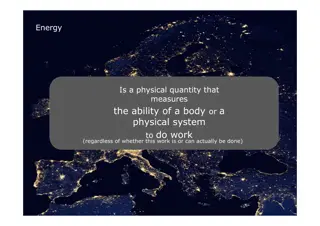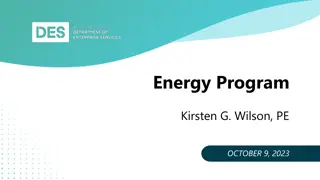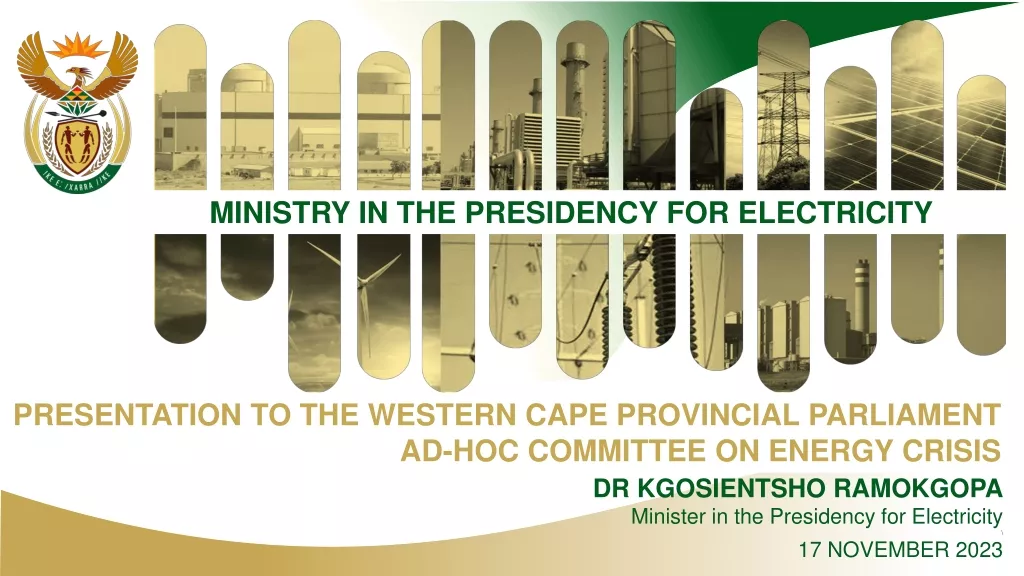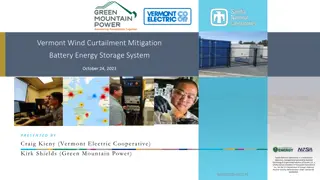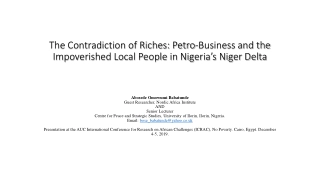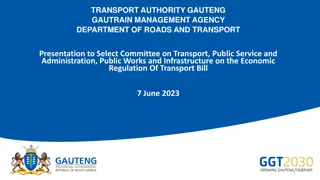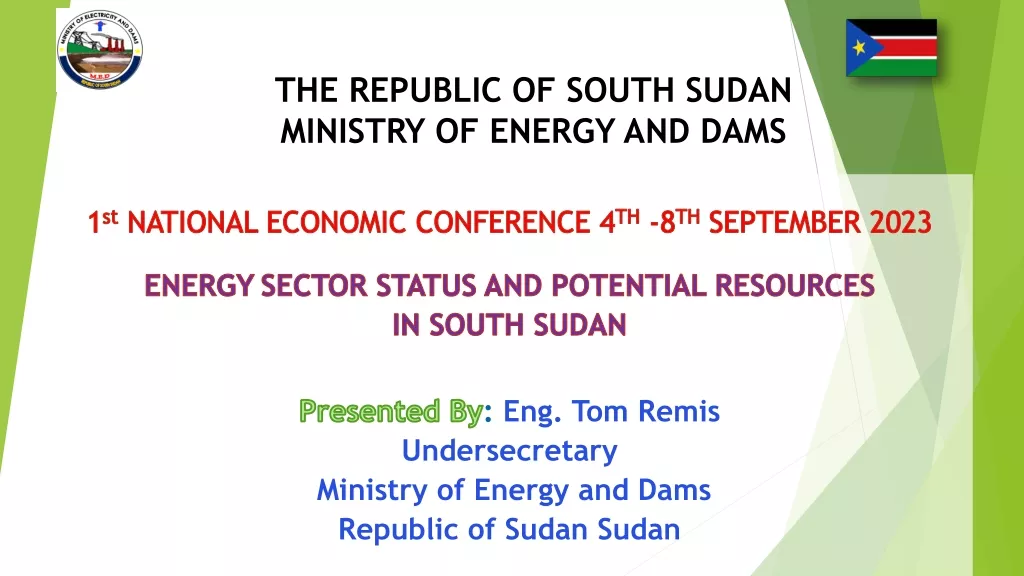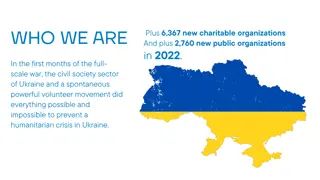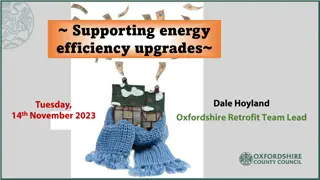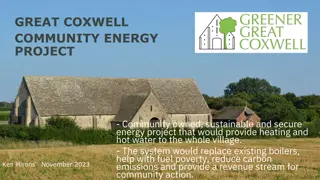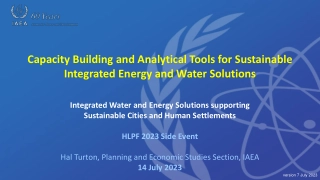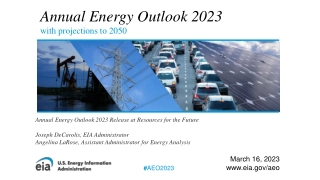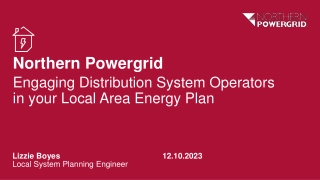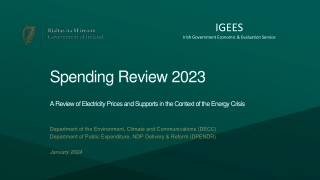Energy Poverty Mitigation Efforts in the Private Rented Sector
This project, supported by the European Union's Horizon 2020 programme, focuses on actions to alleviate energy poverty in the private rented sector (PRS). Initiatives include monitoring energy poverty dimensions, examining policies across the EU, and implementing tailored policies in seven countries. Discussions and strategies address the impact of the current energy crisis on energy poverty activities, with a particular emphasis on utilities and energy companies' role in tackling this issue. Additionally, targeted pilot policies aim to address energy poverty effectively.
Energy Poverty Mitigation Efforts in the Private Rented Sector
PowerPoint presentation about 'Energy Poverty Mitigation Efforts in the Private Rented Sector'. This presentation describes the topic on This project, supported by the European Union's Horizon 2020 programme, focuses on actions to alleviate energy poverty in the private rented sector (PRS). Initiatives include monitoring energy poverty dimensions, examining policies across the EU, and implementing tailored policies in seven countries. Discussions and strategies address the impact of the current energy crisis on energy poverty activities, with a particular emphasis on utilities and energy companies' role in tackling this issue. Additionally, targeted pilot policies aim to address energy poverty effectively.. Download this presentation absolutely free.
Presentation Transcript
Actions to Mitigate Energy Poverty in the Private Rented Sector WELCOME TO THE THE ENPOR POLICY FORUM IV 3/23/2024 This project has received funding from the European Union s Horizon 2020 research and innovation programme under grant agreement No 889385.
Monitor and map the dimensions of energy poverty in the PRS with the Energy Poverty Dashboard Examine in depth energy poverty policies for the PRS across the EU Support the adaption and implementation of 10 policies in 7 countries tailored to the PRS needs
THE IMPACT OF THE CURRENT ENERGY CRISIS ON THE ENPOR ACTIVITIES Impulse Talk Utilities and Energy Companies Tackling Energy Poverty Louise Sunderland, RAP (AB member) Panel Discussion The Impact of the Energy Crisis national building renovation programmes, local advisory support measures, training and information measures, and national energy efficiency obligation schemes Forum Discussion The Energy Crisis and National and Local Energy Poverty Strategies outcomes of stakeholder co-creation activities Tour de Table Input of the Advisory Board members to ENPOR policy suggestions in European policy perspectives
Actions to Mitigate Energy Poverty in the Private Rented Sector Utilities and Energy Companies Tackling Energy Poverty Louise Sunderland, RAP 3/23/2024 This project has received funding from the European Union s Horizon 2020 research and innovation programme under grant agreement No 889385.
Actions to Mitigate Energy Poverty in the Private Rented Sector The Impact of the Energy Crisis Panel Discussion with ENPOR Regional Action Group Leaders 3/23/2024 This project has received funding from the European Union s Horizon 2020 research and innovation programme under grant agreement No 889385.
INVOLVED STAKEHOLDERS Landlords/ Co-owners associations Charitable and social work associations Utilities Stakeholders Energy Agency/ Energy consultants Citizens groups/NGOs Municipality/r egional/ national policymakers
KEY FINDINGS Implement a well-balanced mixture of policies and measures with the active participation of landlords and tenants Foresee the co-financing of the required energy efficiency interventions by landlords and tenants. Design the policies sharing the triggered benefits equivalently between landlords and tenants Take into consideration the actual needs, priorities and expectations of both landlords and tenants Initiate an open consultation procedure with the active participation of landlords and tenants for creating trust Organize targeted information and awareness-raising measures Provide clear and comprehensible information through specialized experts Integrate into the analysis the additional multiple benefits Apply simplified and standardized procedures for the participation of the energy poor households into the planned policies Study the behavioral problems, which are triggered by the phenomenon of energy poverty Examine carefully the application of regulatory measures so as not distort the market and lead to renoviction Foster the participation of the municipalities ENPOR s target is challenging and difficult to be achieved due to the fact that the alleviation of the energy in the PRS is a holistic and multidimensional problem affecting different economic sectors!
Actions to Mitigate Energy Poverty in the Private Rented Sector Outcomes of Stakeholder Co-Creation Activities Forum Discussion on Improvements Suggested 3/23/2024 This project has received funding from the European Union s Horizon 2020 research and innovation programme under grant agreement No 889385.
ESTONIA: NATIONAL RENOVATION GRANT (TREA) Estonian government as a big plan called The Renovation Wave starting from 2022. With the help of TREA and recommendations from REACT group. We have new phase of renovation grant starting in autumn 2022. Hope to see changes we recommended in National renovation grant. 4 REACT group meetings for co-creation changes to the policy: TREA, National renovation grant Most important conclusions: To retrofit houses with many rental apartments it is important to motivate and support apartment owner to renovate, also it is important to remind owner the duties about their property welfare. Stable national renovation grant, not based on time-based line. Better application conditions for Estonian outskirts areas. It is grater possibility to fall energy poverty in outskirts areas. Full package renovation consulting services in Tartu (one-stop-shop). Opportunity to receive grant for new approaches for renovation like cluster, district or multi-building renovation. To bring down construction price and attract bigger and more competent construction companies to take in renovation work.
THE NETHERLANDS: THE ENERGY BOX (HU) The Dutch government has taken new large measures to alleviate energy poverty in the so-called The National insulation program Rijksoverheid 2023. In the upcoming National Meeting we hope to inspire municipalities with recommendations from the REACT groups of Energybox. 4 REACT group meetings for co-creation changes to the policy, last REACT group meeting will validate final proposed improvements of the measure. Most important conclusions: In the beginning of the project it was difficult to engage people in the topic of energy poverty, due to the rising of energy prices this changed. The demand for energy saving measures for tenants has grown, to the extent that Energy Box has difficulty to meet the demand. RREW subsidy scheme was very helpful in creating interest among private investors. Contact with the private sector has however stayed mostly limited to the larger investors with a better energy efficient housing portfolio. Smaller property owners with a smaller and less energy efficient portfolio are still difficult to engage. Especially in the beginning there was limited time, budget and interest to change the Energybox approach. Because of the growing energy prices, the problem of energy poverty became more prevalent, along with the insights that a different approach was needed to reach those tenants suffering from energy poverty. From municipalities and the investors more budget became available. This has led to experiments in the Energybox approach, with measures such as: multiple visits, support with implementation of energy saving measures, door-to-door recruitment, cooperation with social organisations as well as more attention to supporting landlords with retrofitting. Adaptation however takes time and it requires a change in mindset by all stakeholders.
GERMANY: HEATING RELATED ADVICE, PRE-PAID APP (WI) The German Government has adopted a range of measures to alleviate the burden on households stemming from the increasing energy prices, comprising lump sum payments, termination of the renewable energy levy and a temporary reduction of transport fuel taxes. Furthermore, it has recently decided to increase the level of several state transfer payments and to introduce a cap on electricity prices to ensure affordable basic consumption. Pred-paid app Heating related advice 3 REACT group and 2 target group meetings for co-creation changes to the policy. 2 REACT group meetings and 1 target group household survey Most important conclusions: Interest from different stakeholders on the local level has been high from the start, however private landlords proved to be difficult to engage in absence of direct benefits Outreach to energy poor tenants has been complicated due to the pandemic (limited direct contact, fear of inviting advisors into the apartment). While due to the price hikes there is increasing demand, implementation of heating advice hampered by time constraints and lack of extrinsic incentives. Access to information on heating costs for evaluation purposes remains tricky due to practical reasons (bad file management, data protection laws)
CROATIA: NATIONAL PROGRAMME FOR RENOVATION OF BUILDINGS, (DOOR) Energy price support: the monthly amount of compensation for vulnerable energy buyers was HRK 200(26,63 ), but due to the increase in prices, from April 1, 2022, it amounts to HRK 400(53,25 ). That decision is in effect until March 31, 2023. The amount of compensation after that date is unknown. 7 REACT and TARGET group meetings for co-creation changes to the policy Most important conclusions: The problems are lack of definition of energy poverty on national level and lack of criteria on energy poverty on national level. The implementation of financing measures within Energy renovation programme for multi-apartment buildings for supporting both landlords and tenants are critical for the conformation of energy poverty in private-rented sector. The integration of specific measures and criteria will be considered as option to alleviate energy poverty in the private rented sector. There is interest in the Program and Public calls, but most citizens are concerned about too complicated administrative paperwork and application More systematic education about energy poverty and alleviating energy poverty in private-rented sector for citizens should be conducted After the analysis of the survey, the obtained data can be used for further action on the alleviation of energy poverty in the area of Bu evec, Kri evci, Zadar and Koprivnica
Tour de Table: What suggestions/insights do you have in the light of the current crisis for: National renovation measures to overcoming the key barrier to retrofitting/renovation in the PRS: the split incentive / tenant-landlord dilemma? Local advisory measures when considering short term, mid term and long term actions to combat energy poverty in the private rented sector Training programmes and information campaigns related to the specific situation of energy poverty in the PRS National energy efficiency obligation schemes considering energy poverty in the PRS


